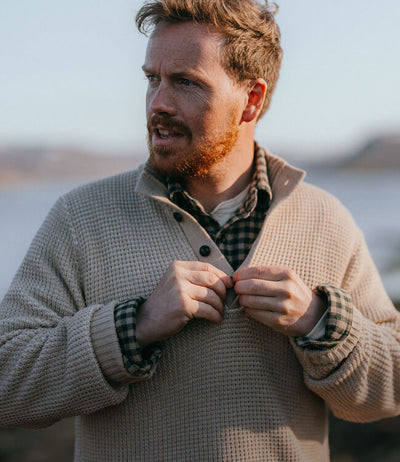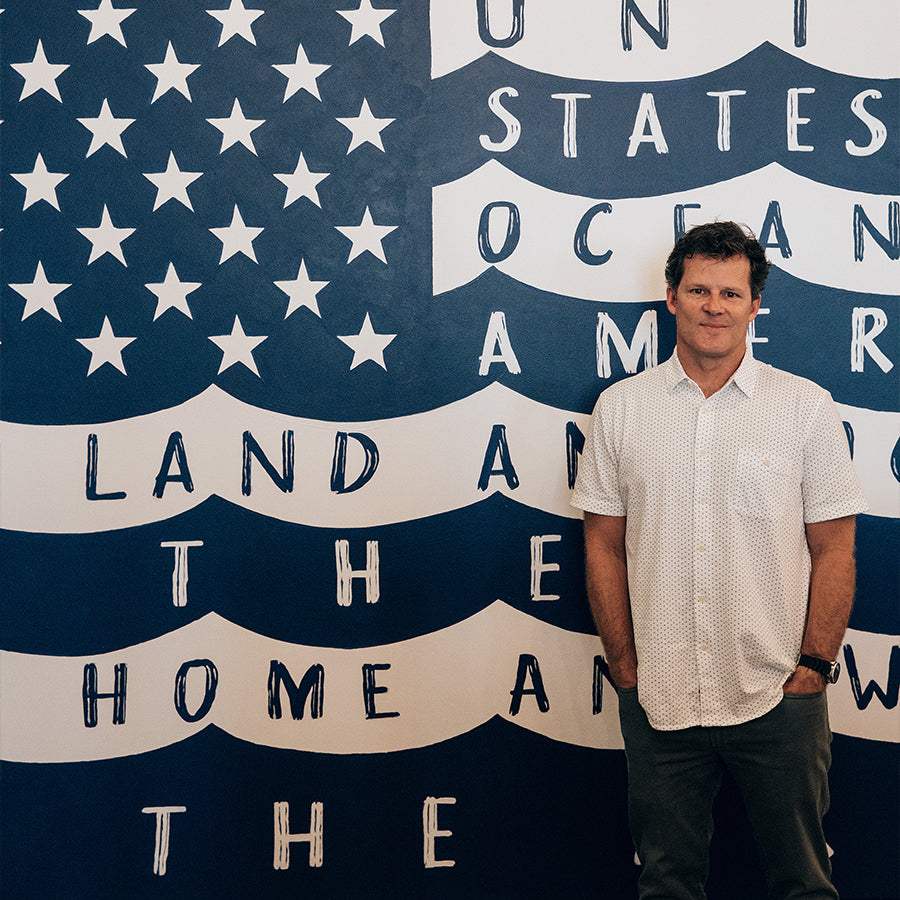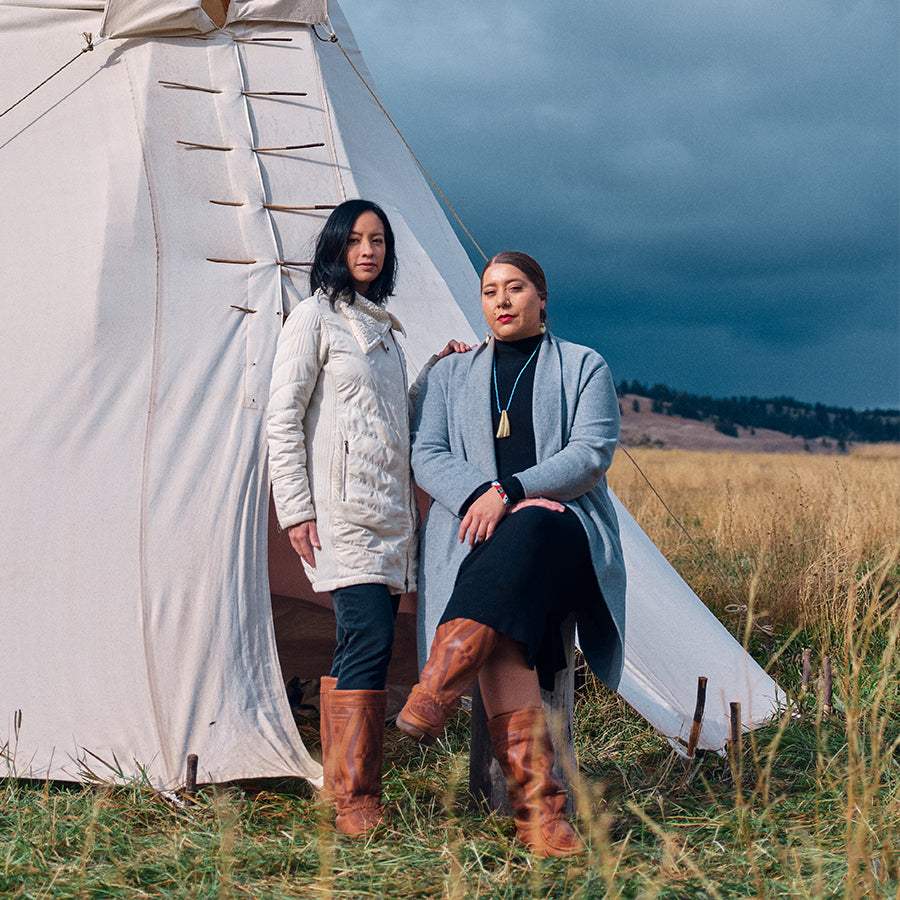The climate crisis is real and happening all around us. From increasingly severe storms and fire seasons to rising sea levels, the impacts of climate change are visible now and are only getting worse. The good news is that we can still do something about it— but we have to start now.
We recently caught up with Dr. Chad Nelsen, Faherty friend and CEO of the Surfrider Foundation, to learn a little more about how we can help in tackling this global issue.

“As we’ve seen this summer, with fires raging in the west and hurricanes battering the east coast and the gulf, climate change is here,” Chad told us. “The planet is warming at an alarming rate, and urgent action is needed.”
Our ocean is at the center of climate change.
“The ocean has absorbed 90% of the heat and 30% of the carbon that we’ve pumped out into the atmosphere, melting glaciers and causing thermal expansion, which results in sea level rise,” Chad explained. In addition to ocean acidification and stronger storms, scientists are now finding abnormal blobs of warm water — called marine heat waves — which are wreaking havoc on marine wildlife and devastating ecosystems.
Coastal erosion is yet another indicator of climate change, which Surfrider recently evaluated in their annual State of the Beach Report. The report provides a state-by-state evaluation of the preparedness of coastal states to address the growing threats of climate change. As sea levels continue to rise due to our warming climate, areas where development encroaches on the natural landscape are at risk of erosion (or already are eroding).

What can we do?
“On a policy level, we really need to rejoin the Paris Treaty and pass comprehensive climate policies here in the United States,” Chad told us, adding that “there are a lot of things you and I can do, personal actions that we can take today, to help limit our carbon footprint.”
As an organization, Surfrider fights in individual communities and all the way up to the federal level for policies that will help protect our ocean and coasts, both now and for future generations. Earlier this year, Surfrider hosted over 150 activists in Washington D.C., where participants visited 145 Senate and House offices to urge immediate action on the climate crisis and other key issues, such as plastic pollution and water quality. Thanks to Surfrider activists on the ground throughout the country, positive policies are being implemented all the time at the city, county and state level, from single-use plastic and foam bans, to harmful development projects being halted in favor of coastal health.

On an individual level, some of Surfrider’s tips for reducing your carbon footprint are:
- Replace single-use plastics with reusables.
- Plastics are fossil fuel products which contribute significantly to greenhouse gas emissions, and once littered, never biodegrade. One way you can help keep plastics out of the natural environment is by hosting your own beach cleanup!
- Eat locally, grow your own food, and cut down on meat.
- 13% of greenhouse gas emissions are directly related to food production, transportation, and disposal.
- Plant an Ocean Friendly Garden
- By strategically removing non-native species and choosing climate-appropriate plants for your yard or garden, you can help trap greenhouse gases in your soil. Learn how here!
- Monitor your thermostat.
- It can help limit excess resources being used to heat or cool your home.
- Reduce car and plane travel when you can.
- It’s a big, easy step to cut back on fuel-related emissions.
- Support comprehensive climate action.
- Contact your representatives here!
As Chad said, “This is certainly a challenging issue, but we can solve this if we work together.” Join us in making some small shifts in your everyday habits to help reduce your climate footprint — on our end, we’re working on testing out an environmentally-friendly tissue paper alternative to our recycled polyester packing bags!
Faherty is proud to partner with the Surfrider Foundation, a grassroots nonprofit organization dedicated to the protection and enjoyment of the world’s ocean, waves, and beaches for all people, through a powerful activist network. To learn more and get involved, visit surfrider.org.


















